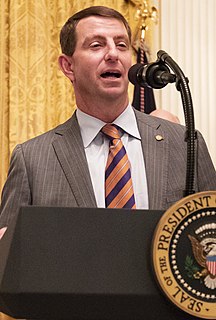A Quote by David Maraniss
Detroit was an exaggeration of what was going on across the country. You could see the divisions, even within the Civil Rights Movement of that period. At the same time that Martin Luther King was talking about his dream, Malcolm X gave his most famous address in Detroit during that same period, "The Message To The Grass Roots," dismissing the notion of integration.
Quote Topics
About
Across
Address
Civil
Civil Rights
Civil Rights Movement
Could
Country
Detroit
Divisions
Dream
Even
Exaggeration
Famous
Gave
Going
Grass
His
Integration
King
Luther
Malcolm
Martin
Martin Luther King
Message
Most
Movement
Notion
Period
Rights
Rights Movement
Roots
Same
Same Time
See
Talking
Time
Within
Related Quotes
That was exciting to be able to comment on civil rights. I mean, the civil rights movement that young people don't know about today, but Martin Luther King was considered by the establishment press in the early years of the sit-in movement as a dangerous man, and he was the equivalent at that time as Malcolm X. And he was told to stop his demonstrations; they were against the law and all of that. Now that he's sainted and sanctified we've forgotten.
The civil rights movement didn't deal with the issue of political disenfranchisement in the Northern cities. It didn't deal with the issues that were happening in places like Detroit, where there was a deep process of deindustrialization going on. So you have this response of angry young people, with a war going on in Vietnam, a poverty program that was insufficient, and police brutality. All these things gave rise to the black power movement. The black power movement was not a separation from the civil rights movement, but a continuation of this whole process of democratization.
I was involved in the civil rights movement way back in the late '50s and through the '60s and '70s. I was doing a civil rights musical here in Los Angeles and we sang at one of the rallies where Dr. Martin Luther King spoke, and I remember the thrill I felt when we were introduced to him. To have him shake your hand was an absolutely unforgettable experience. Even before I could vote, I was involved in the political arena.






























